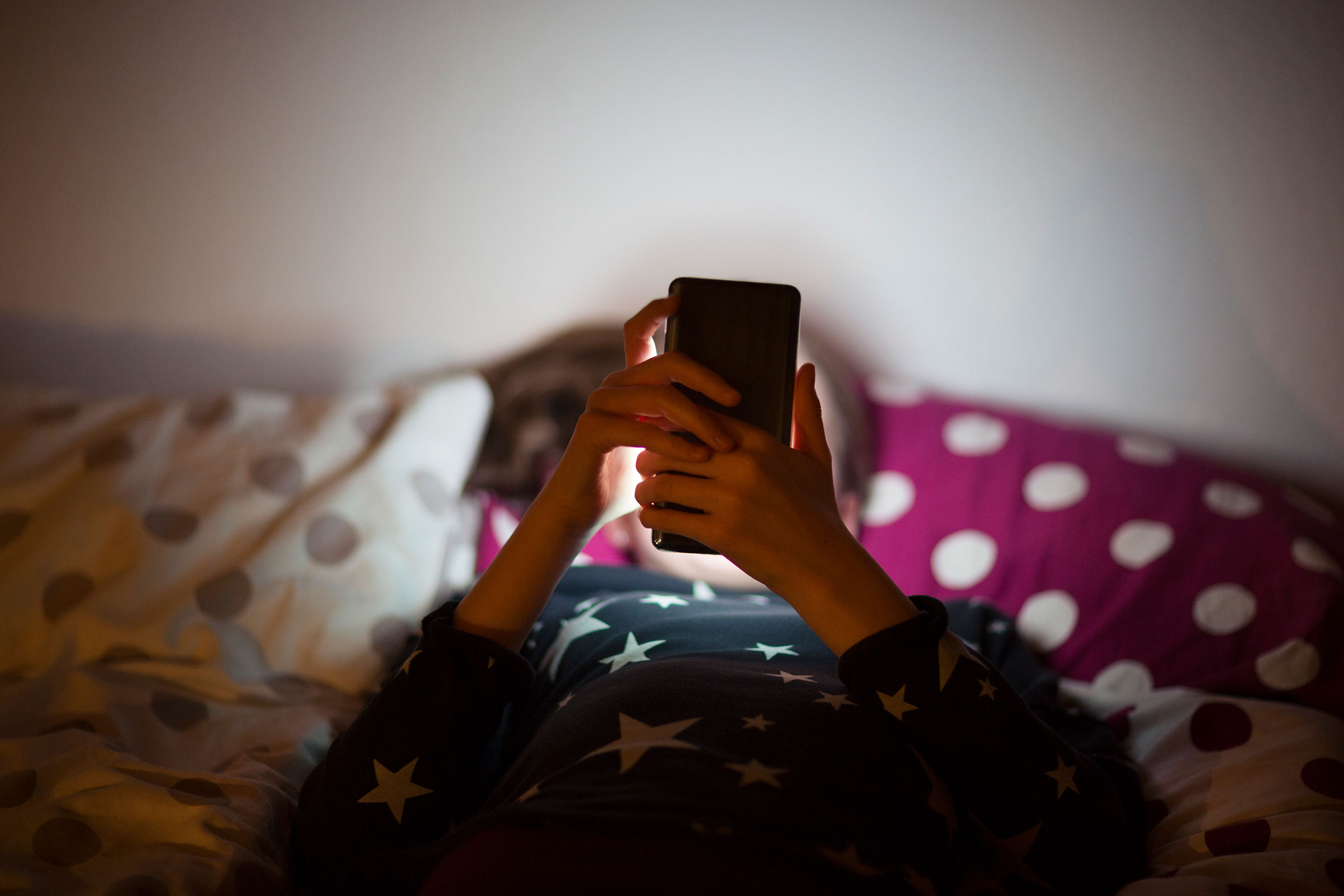
Although Destinee was just 13 when she created her first Instagram account in 2012, she was late to the world of social media. She remembers standing in her best friend’s bathroom, posing in front of the mirror as her friend taught her how to take a selfie.
“Stand right here,” the friend said, grabbing Destinee’s arm. “Hold the camera up higher and put your hand on your hip.”
Destinee was wearing makeup that was too light for her dark complexion, and she struggled to keep her eyes open after applying too much of the thick black mascara she took from her friend’s mother’s makeup drawer. She posed anyway. She did not have a smartphone, so her friend loaned her an iPad to access Instagram.
“Finally,” her friend said as Destinee tapped the button to create an account.
Like most young people, Destinee quickly learned how to use Instagram for social gain. If she used more than one filter she received more likes, and if she showed more skin, she received more comments. She was obsessed with increasing her engagement—likes, comments and shares—because the more she received, the more she felt she was positively perceived by her peers.
But after years of trying to reach Instagram’s impossible standards, she began to develop an overwhelming fear of rejection and uneasiness. She would stare at her screen for hours after uploading one picture, anxious about the reaction she would receive and whether people would approve of her.
Then, this month, at age 22, Destinee was diagnosed with an anxiety disorder—which is common among her peers. The tipping point, which made her seek help from her doctor, was an Instagram post she made about her grief after losing her father. She went back and edited the caption several times after posting it, each time trying to add a more optimistic tone—one that would be more likely to win approval from her followers. Her doctor told her the pressure she feels to present herself as someone other than her authentic self is the key factor to her diagnosis.
READ MORE: Instagram Makes Teen Girls Hate Themselves. Is That a Bug or a Feature?
As two members of Generation Z, no one we know is doing well mentally, but you wouldn’t be able to tell from their Instagram posts, which usually show our friends only smiling. There’s an insurmountable pressure to perform.
The Wall Street Journal reported last week that Facebook knows Instagram can be mentally detrimental for teenagers and young adults. “We make body image issues worse for one in three teen girls,” a Facebook presentation quoted by the Journal said.
Facebook also found young women have been diagnosed with eating disorders, anxiety, depression, or had suicidal ideations—all linked to their usage of Instagram. According to Facebook’s own study, reported by the Journal, 13% of British users and 6% of American users who reported suicidal thoughts traced the desire to harm themselves to Instagram. This study solidified years of anecdotal accounts of what we already knew: Instagram is killing us.
Adam Mosseri, the Head of Instagram, told the Journal that mental health such as anxiety is not an Instagram-specific problem, rather it is a “societal problem” with no “silver bullet.”
Meanwhile, Facebook’s business model is to monetize user information and maximize profit over privacy, and it has no incentive to change. How many teenagers and young adults have to be diagnosed with anxiety, depression or an eating disorder before social media platforms take action?
As regular social media users who grew up online, this is what must be done:
First, Mark Zuckerberg and Mosseri must be held accountable for their misleading and vague responses to the media and Congress. Earlier this year, Sen. Richard Blumenthal, Sen. Marsha Blackburn, and Rep. Cathy McMorris-Rogers asked Zuckerberg for the company’s internal research about the mental health effects Facebook and Instagram can have on young people. Facebook failed to provide the data.
READ MORE: Here’s a Break Down of the Wall Street Journal’s Facebook Revelations
Second, Congress must provide social media users with a platform to discuss the side effects of regular social media usage. Teenagers and young adults need a safe place to share their experiences and interactions with elected officials, even in a formal hearing.
Third, elected officials must understand social media is the main way that many young people socialize—especially after the pandemic, but it needs regulation. Deleting the apps is not an option for many young people; it has a social price that most are unwilling to pay. Users need effective regulation to help them protect themselves, such as banning targeted ads for kids and teens, safeguards to restrict the collection of user data, and tools to stop endless scrolling.
Destinee had her wake-up call when she sought treatment for her anxiety disorder. She is learning to develop a healthier relationship with social media.
These revelations must be a wake-up call for our entire generation—and the people who have the power to force change.
More Must-Reads From TIME
- Dua Lipa Manifested All of This
- Exclusive: Google Workers Revolt Over $1.2 Billion Contract With Israel
- Stop Looking for Your Forever Home
- The Sympathizer Counters 50 Years of Hollywood Vietnam War Narratives
- The Bliss of Seeing the Eclipse From Cleveland
- Hormonal Birth Control Doesn’t Deserve Its Bad Reputation
- The Best TV Shows to Watch on Peacock
- Want Weekly Recs on What to Watch, Read, and More? Sign Up for Worth Your Time
Contact us at letters@time.com